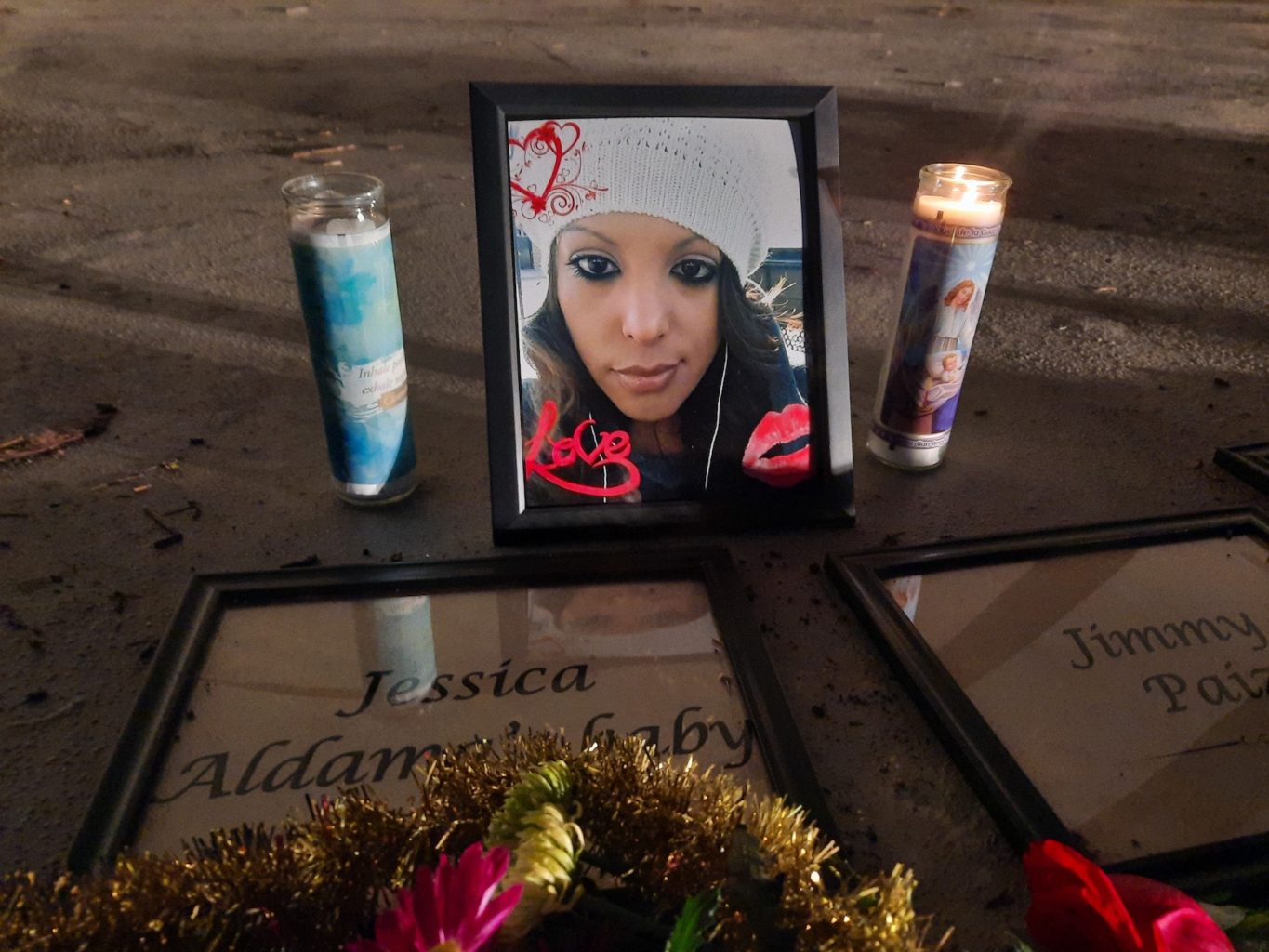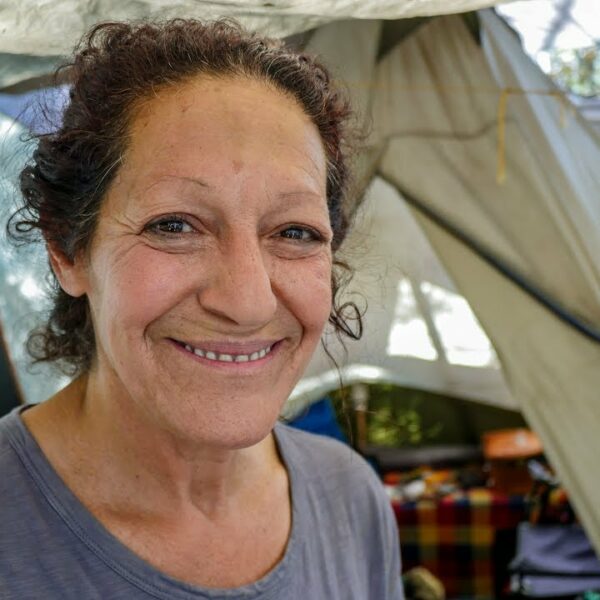Jessica Aldama and her newborn baby died tragically in an open field in Boulder, Colorado, this past October. Their names are now scrawled alongside thousands of others as homeless deaths continue to escalate in the aftermath of an international crisis.
Can you imagine what those final moments must have felt like for Jessica- 33, homeless and alone, left to die while trying to bring a life into the world? Imagine the tremendous effort it would take to deliver your baby in a wide-open space where nobody can hear you scream.
Can you even fathom the toll that homelessness had taken on the innocent newborn inside her belly, a newborn who never got the chance to grow? Picture the painful exchange between mother and child, as Jessica’s body began to fail her, and her stillborn infant lay lifeless in her arms.
This scenario is what Boulder police call “extraordinary efforts” to support the welfare of homeless mothers and their unborn children. This is what the criminalization of homelessness really looks like for those who don’t immediately turn a blind eye.
Shameful Police Tactics: Jessica Aldama was Ticketed a Month Before her Death
As a testament to the misleading tactics of the Boulder Police Department, spokesperson Sarah Huntley mentioned that about a month before Jessica’s tragic demise, an officer “saw her at an encampment.”
The truth, however, was quickly revealed on the internet. The encounter proved to be anything but supportive.
A quick search through criminal records reveals that when law enforcement “saw her” at this encampment, eight months pregnant and struggling to survive, rather than help, they ticketed her. The docket shows she was ordered to appear in court and was charged with “possession of prohibited items.”
At this point, you may be wondering what prohibited items this pregnant homeless woman could possibly possess. If you’ve read the negative media portrayals of the homeless community, you might even wrongly assume she possessed something dangerous like drugs, alcohol, or even weapons.
This was absolutely not the case. In reality, the “prohibited item” the officer refers to is none other than the tent where Jessica was sleeping. Her crime was “camping,” which is merely code for appearing homeless in the public eye. In a coinciding memo, the ticketing officer wrote the following, “had tent set up, spent night there,” which further solidifies the grounds of her citation.
Deception Grows Deeper as Law Enforcement Attempts to Conceal the Death of a Newborn
As further proof of intentional deception surrounding this traumatic scene, only Jessica Aldama was listed as deceased when law enforcement first reported the homeless death. The public was not initially informed that her baby also died, a vital detail that likely would have drawn empathy from even the most hardened of hearts. In response to this, a spokesperson for BPD made the following statement:
“The police department does not typically release information about unattended deaths on private property unless foul play is suspected.”
This revelation leads to a long line of essential questions. How many other homeless infants have died without the public knowing? Why was Jessica Aldama’s death revealed to the public? Was foul play suspected as is part of the purported criteria?
As violent acts against homeless people escalate at alarming rates, the startling truth is we may never know.
Cited but Not Heard: How Law Enforcement Ignored this Pregnant Woman’s Needs
The Daily Camera reports that the officer who initially ticketed Jessica presumed she was expecting a child. She had even complained of nausea associated with pregnancy and morning sickness. Yet, rather than take her to a hospital to get the medical attention she desperately needed, Aldama was shuffled by law enforcement into a clinic for poor and uninsured people. It was there that a kind-hearted nurse suggested the 33-year-old expectant mother receive further care at the Boulder Community Health Hospital.
Sadly, Jessica Aldama never received the prenatal or post-natal care she would have needed to deliver a healthy baby and survive the experience.
A study released by the American Sociological Association in 2019 concluded that “complaint-oriented policing,” examples of which include sleeping and camping bans, “create barriers to services and jobs, and increase vulnerability to violence and crime.”
To that end, receiving a citation and fine for publicly engaging in life-sustaining activities likely deepened the wedge of distrust that already exists between the homeless community and law enforcement. As a result, it likely caused this homeless expectant mom to second-guess the system and instead resort to desperate measures that would prove fatal.
Pathways to a Brighter Future: Please Push for Long-term Non-Punitive Solutions to Homelessness
Armed with the above information, it’s easy to see how this tragedy could have played out differently if homelessness was sympathized instead of criminalized. It is entirely possible that if Jessica Aldama and her unborn child had received the care and assistance they needed in a timely manner, they both might be alive and well today.
Here at Invisible People, we envision a reality where everyone has a home and is therefore privy to the safety and well-being that comes along with being housed. As cities all across the nation push to increase homeless criminalization and the affordable housing crisis grows, we are moving further from that vision.
This heartbreaking story highlights several noteworthy flaws in our social safety net. Here are just a few:
Lack of sympathetic media coverage for the homeless community
Can you imagine how many media headlines this story would have made if a housed woman died giving birth to a stillborn baby in an open field? Yet, our neighbors without walls rarely ever receive the same level of sympathy and recognition. In the media, such individuals are portrayed negatively or not at all.
Lack of accessible healthcare for pregnant homeless women
To quote directly from the pros at World Atlas, “The United States is still the only country in the developed world without a system of universal healthcare.”
The ill-effects of the criminalization of homelessness
1 in 30 children is now homeless in America, with thousands of babies born into this desolate condition every year. Criminalizing homelessness is statistically proven to be unhelpful, expensive, and the furthest possible thing from a solution to the problem.












